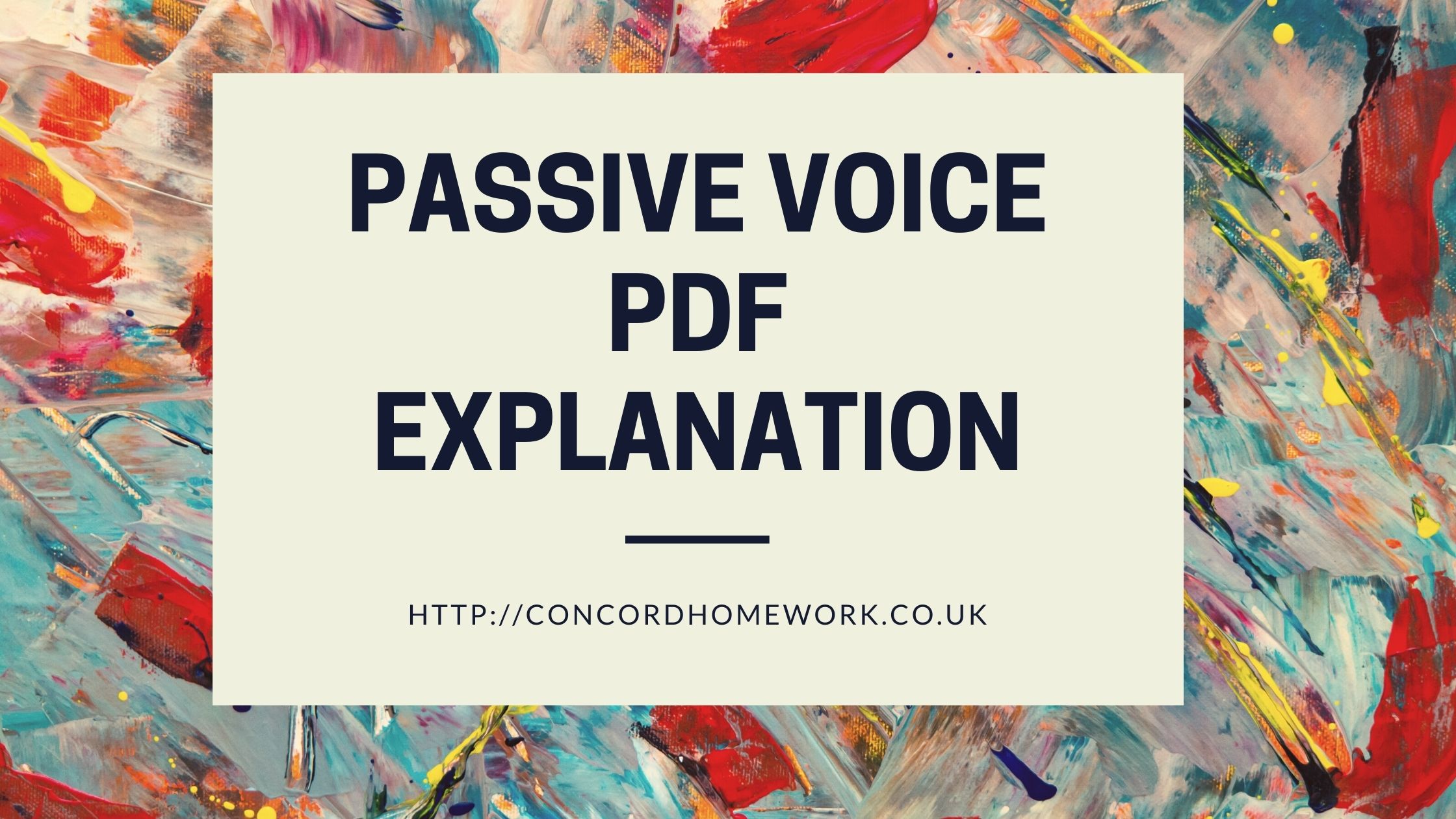This post explains the use of the passive in the past, present, modals, and the future. I’ll explain when to use and why. Scroll down to download “Passive voice PDF explanation”!
The passive present and past tenses
1 The object in the active sentence corresponds to the subject in the passive sentence:
All schools teach English. (English is the object of the sentence)
English is taught in all schools. (English is the subject of the sentence)
2 We make the passive form with auxiliary verb be + past participle. The form of be changes person (1 st, 2nd, 3rd) and tense. The past participle always stays the same:
| Present simple: Present continuous: Past simple: Past continuous: Present perfect: Past perfect: Future: Modals: | All papers are printed. (am/is/are + v3 “past participle”) The garden is being mowed. (am/is/are + being + v3 “past participle”) The museum was built in 1877. (was/were + v3 “past participle”) The house was being painted. (was/were + being + v3 “past participle”) The phone has been repaired. (has/have + been + v3 “past participle”) The seat had been taken. (had + been + v3 “past participle”) Mars will be explored. (will +be + v3 “past participle”) Exams are going to be done in July. (be going to +be + v3 “past participle”) The rock must be destroyed. (must/should/could/may/might/can +be + v3 “past participle”) |
Negatives: We form negatives and questions in the same way as in active sentences:
The film isn’t being televised now.
The room hasn’t been tidied.
Questions:
Were the mats being cleaned?
Had the decision been made when you joined the meeting?
3 We can mention the agent (the person/thing that did the action) in a passive sentence with by + noun: Hamlet was written by Shakespeare. (Shakespeare is the agent “doer”)
4 We can use the passive when the person/thing that did an action is not relevant, or not known:
What is paper made from? ~ It’s made from wood. (The make of papers is unknown or irrelevant).
5 Future and modal passives
We use be + past participle after will, be going to, must, should, have to, etc. for the future and modal verbs in the passive:
The future
He‘ll be called back next year.
Those trees are going to be cut down.
Is she going to be given another chance?
Modal verbs
The rooms must be cleaned daily.
The patient should be checked three times a day.
The assignment has to be done by four students.
6 Some verbs can have two objects, e.g. ask, give, lend, offer, pay, promise, sell, send, show, teach, tell. With these verbs, we usually make the indirect object of an active sentence the subject of a passive sentence:
Active: The professor taught Alex Spanish. (Alex is an indirect object)
Passive: Alex was taught Spanish by the professor. (Alex is the subject)
A person can often be the subject in a passive sentence with these verbs:
Dylan was given some books.
Esma has been promised an expensive birthday gift.
Note:
We usually do not need to mention the agent in a passive sentence. We do not mention it if it is not important for the meaning of the sentence:
The tower was built by some builders in 2012.
(We do not need to say ‘by some builders’ as this does not give any new information.)
Use of the passive
1 We can use the passive to talk about processes, for example, scientific or historical processes:
Originally iron was made using a wood fire, but later steel was produced in a furnace that burnt coal. Nowadays most of our steel is imported.
2 We often use the passive in formal writing to sound impersonal. This example is from a newspaper report:
The country has been affected by flooding; hundreds of people have been evacuated; many still need to be airlifted to higher ground.
3 We use the passive with by if we want to focus on the subject of the passive sentence. This might be so that the sentence connects better with the one before. This is useful in extended written and spoken descriptions, such as this guided tour:
We’re now in Endigate Street. This street was designed by famous architects who were employed directly by the King.
(‘This street’ links to the previous sentence.)
Or it might be because the sentence would not make sense without mentioning the agent.
The theatre was designed by Hawksmoor. (‘The theatre was designed’ would not make sense.)
4 We can use the passive to talk in a factual way about official plans and decisions:
The city centre is going to be re-designed next year as a pedestrian area. Private traffic will be excluded and a regular bus service will be introduced.
“Thank you for taking the time to explore this topic with us! We hope you found the information helpful and insightful. Have any thoughts, questions, or additional examples to share? We’d love to hear from you in the comments below!
Don’t forget to spread the word by sharing this blog with your friends, family, and colleagues. Together, let’s continue to learn, grow, and connect with the world around us. Happy reading and sharing!”
* Download “Passive Voice Exercise” in PDF
“Thank you for taking the time to explore this topic with us! We hope you found the information helpful and insightful. Have any thoughts, questions, or additional examples to share? We’d love to hear from you in the comments below!
Don’t forget to spread the word by sharing this blog with your friends, family, and colleagues. Together, let’s continue to learn, grow, and connect with the world around us. Happy reading and sharing!”




















